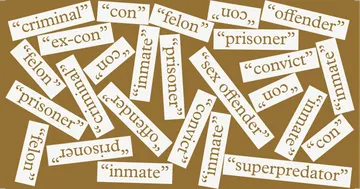In 2017, 70 percent of low-income households in America had some kind of civil legal problem, ranging from divorce to a housing dispute, according to the nonprofit Legal Services Corporation. But in the civil system, there is no guaranteed right to representation. That means families living near the poverty line handle the vast majority of those cases — 86 percent — with little or no professional legal help to guide them.
This civil legal system “crisis”, as advocates call it, has sent states scrambling for solutions. Washington has taken the unusual approach of creating an entirely new legal position, one that can help clients with straightforward legal problems for a fraction of the cost. The new “legal technicians”, the first of whom were licensed in 2015, go beyond a paralegal and don’t need a lawyer’s oversight to offer legal advice. They are to the legal field what a nurse practitioner is to medicine, a triage model that may soon expand to several other states.
Attorney Steve Crossland, former president of the Washington State Bar Association, hoped creating something like a legal technician would cut down on the fake lawyers and “notarios” who were selling cheap divorces, wills and other legal contracts with no expertise. Crossland saw a huge need for more affordable legal help that was still subject to government oversight.
“It was designed to make sure that people who were delivering these services were qualified and regulated,” he said. “In the best of all possible worlds, it would be great if everybody had access to a full attorney. But it isn’t going to happen. We’re hoping the [technicians] will be able to provide the services at a price that consumers can afford.”
The new position, formally titled a “limited license legal technician” or LLLT, requires an associates degree or higher, and another year of online classes focused on a specific practice area. Before receiving their license, each technician must also complete 3,000 hours of supervised legal work as a paralegal or assistant.
Such professionals still have significant restrictions. They can’t appear in court or communicate with opposing counsel, rules that licensed technicians are trying to loosen. They can only address family law matters, such as child support, divorce, or protection orders in domestic violence cases. The Washington State Bar Association is now considering approving them to work on consumer debt and other financial cases.
The line between the civil and criminal justice system is blurry: Unpaid fines, fees and child support can land someone in jail. It may take a civil lawsuit to fight the fallout of a criminal conviction or clear a record. And a criminal arrest can lead to an eviction hearing and homelessness. That overlap makes it even more important for someone to have legal help in civil matters, advocates say.
Some worry, however, that anything less than a fully licensed attorney won’t get clients the justice they deserve. “We advocate for full representation because we’ve seen how effective it is. The data on alternatives like these programs is still pretty limited,” said John Pollock, coordinator for the National Coalition for a Civil Right to Counsel. “The concept is interesting, but we don’t know yet if it’s going to be a meaningful contributor to the [problem].”
Jen Petersen, of Bellingham, Wash., was the fourth LLLT to receive her license, after working as a paralegal for 16 years. “It was just attractive to me to be able to help people navigate a really complex legal system. I got divorced myself when I was 25. … I know how difficult and scary it is,” said Petersen, who works within a law firm with several attorneys. “The bulk of my clients wouldn’t have been able to hire an attorney. My hourly rate is half of what our family law attorney’s is.” LLLTs often serve families with a low to moderate income who can’t pay for a full lawyer but might make too much to qualify for free legal aid.
The Washington program has faced pushback from some family lawyers in the state. “While there is some significant training, it’s not what I would call adequate,” said Doug Becker, a longtime family lawyer in Seattle and co-founder of the Domestic Relations Attorneys of Washington. Becker also questions whether for-profit businesses can serve the state’s poorest. “It’s not a social services agency.”
Immigration lawyers have also resisted proposals to let technicians work in their field, despite the immense need for representation in such cases. In a 2015 report to the State Bar Association, the Washington chapter of American Immigration Lawyers Association said they “overwhelmingly [oppose]” the idea, given the ever-changing, complicated nature of immigration law.
Multiple states are now adopting similar programs to help fill the gap in legal aid. In Utah, “licensed paralegal practitioners” will likely begin this fall helping clients facing eviction, debt collection, and family law issues. The Oregon Bar Association may soon create its own limited license position, and roughly six other states are assessing a similar path, Crossland said.
“We have civil courts where three-quarters of the litigants are there without counsel or with any legal help at all. That’s not what the system was designed for,” said Martha Bergmark, executive director of Voices for Civil Justice, a Washington, D.C.-based nonprofit focused on expanding civil legal aid. “This is a moment where there’s recognition that we have a problem, and I think LLLTs are a part of the solution.”
